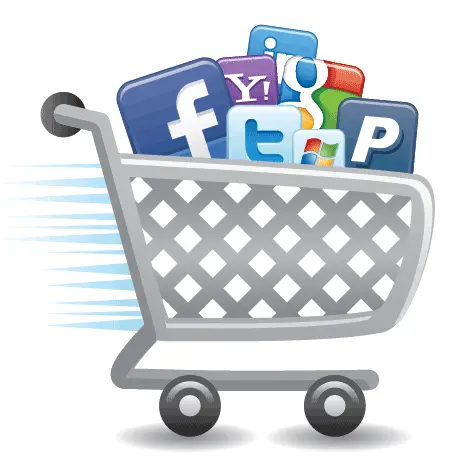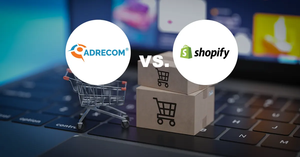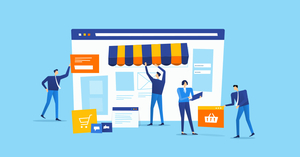
Big brands like Pepsi and McDonald’s, with tangible products and live locations, certainly aren’t the only companies out there benefiting from social media sites like Facebook. Ecommerce businesses are also doing quite well with Facebook.
Of course, ecommerce is unique in the sense that the transactions are taking place solely online, but once you break it down, you realize that it’s really an even playing field. Nobody is able to sell their products directly from a fan page; everybody is simply attempting to build awareness to boost their brand with the ultimate goal of increasing sales. And, yes, your ecommerce business can benefit from this too.
8 Business-Boosting Social Media Benefits Ecommerce Brands will Love
1: Standing as an Authority
One of the primary things you have to focus on here is actually standing out as an authority in your respective niche. If you want people to take you seriously enough to follow you (literally) and to hopefully become customers, then you can’t be some Johnny-come-lately with an affiliate link to spam all over the place. You have to speak with an informative, authoritative tone to stand out as numero-uno in your niche. This is something social media can provide across an incredibly large scope.
2: Attracting the Right Customers
Sites like Facebook also give you a fair amount of control as to whom you’re advertising. For instance, with something like email marketing, you’re dealing with a hit-or-miss brand of targeted marketing that, once you cut through it, isn’t that “targeted” at all. With Facebook, however, you can select an extremely narrow market if you wish and subsequently advertise for and/or to specific markets and individuals, so you’re attracting only those most likely to become customers.
3: Customizing a Funnel
The old version of the sales funnel requires a lot of steps that, while not set in stone, don’t work well with variation. The beauty of social networking is that you can customize a sales funnel and consistently change it while still managing to drive traffic to the necessary locations. In other words, you can hook fish using a wide assortment of tackle. You might even learn how to use a net.
4: Engaging the Easy Way
Engagement is key with any ecommerce business, as you’re looking for repeat business, a good brand reputation, and for customers to spread the word for you. This is all par for the course with social media sites. Plus when using Facebook, your advertising costs are cut tremendously due to the many organic targeting features you can employ to develop an audience naturally.
5: Directing the Cart Race
While you’re not going to attach a shopping cart to your Facebook business page, you can still use different social media sites to act as the advertising arm for your ecommerce business. In other words, you can use Facebook, Twitter and other social media networks to speak about your store, extolling its benefits, and to direct traffic to various landing pages and to your shopping cart. You can start early, hyping your store up, or you can simply provide updates and interlink your entire network. The options are limitless, and it’s you who’s in control of the cart race here.
6: Fostering Real Relationships
As mentioned above, it’s all about repeat business. Since the percentage of people to actually purchase from you compared to people in your network is usually too sad to even attach a number to, that individual who makes the purchase is the individual you want to keep happy. Social media allows incredibly easy access here for dialogue. Plus you have a wide set of Facebook tools to use to keep their attention.
7: Offering High-Quality, Pertinent Material
It’s all about quality when you’re dealing in ecommerce. Everybody and their brother has some affiliate scheme in the works. And anybody can post a pointless, out-of-place link and attach a funny meme in there somewhere. This stuff doesn’t work. What works is high-quality material that’s extremely relevant to your audience. Facebook allows you the opportunity to not only reach your specific market but also to act as a problem-solver at the same time, delivering quality, pertinent posts.
8: Seeking Out Your Audience
One of the rules in ecommerce is that your audience isn’t seeking you out; you must seek them out and place yourself in their line of sight. Facebook makes this easy for a few reasons. First and foremost, we’re talking about over a billion people here, with a large percentage checking their profiles daily. Then there’s the fact that you can reach people directly, send gifts and messages, provide a wide range of material, and show up in their news feeds to remind them about your brand.
Social networking and ecommerce get along very well, but nothing here is automatic. Knowing about the benefits might entice you and make you want to use social networking to boost your business, but you still have to focus on quality brand-building and big engagement numbers if you want to succeed.
Post written by: Craig Robinson, a freelance writer from Qwaya – a facebook ad campaign manager. He writes different topics about social media strategies and loves to explore new information about it. He's also participating in some communities and social media forums.




